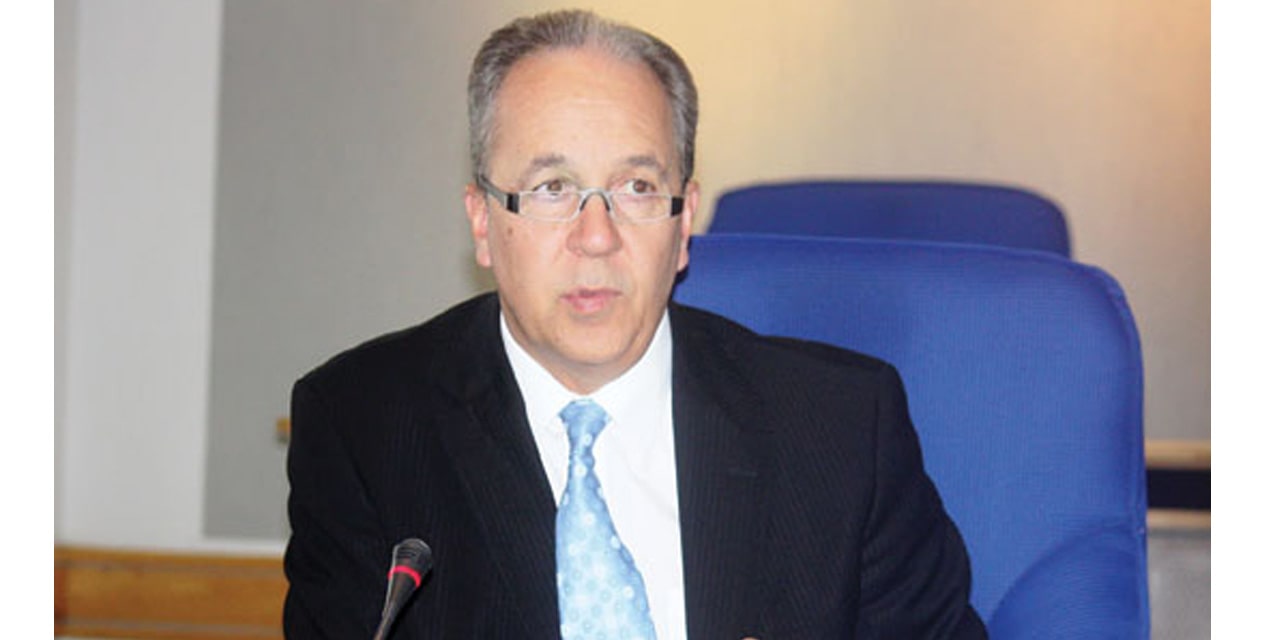Andrew Kathindi, Tujoromajo Kasuto
State Owned Enterprises (SOEs) could see a mass exodus in the following months and years, with a new Cabinet directive baring Chief Executive Officers (CEOs) of SOEs serving on the board of other SOEs.
The development was confirmed by Public Enterprises Minister, Leon Jooste. The new directive is the reason why Namibia Revenue Agency (NamRA) Commissioner, Sam Shivute, will not be considered for reappointment as board Chairperson of the National Housing Enterprise (NHE). Shivute had previously admitted failure during his tenure at the NHE, which is currently faced with a leadership crisis pitting senior management against its CEO, Gisbertus Mukulu.
“That’s a new directive and will be applied henceforth. This only applies to CEOs,” Jooste told Windhoek Observer. A number of SOEs’ CEOs currently serve on a number of boards of other parastatals.
To be affected by the regulations is Heinrich Mihe Gaomab II, Chairperson of Communications Regulatory Authority of Namibia (CRAN) as from 1 July 2019 until 31 June 2022 and Chairperson of the beleaguered National Fishing Corporation of Namibia (Fishcor) as from 06 July 2020. Gaomab II was recently appointed CEO of the Namibia Industrial Development Agency (Nida) as from 1 May 2021.
Vivienne Katjiuongua, CEO of the Business and Intellectual Property Authority (BIPA) also serves as Vice-Chairperson of Communications Regulatory Authority of Namibia (CRAN) board. Theo Mberirua, CEO of Air Namibia, currently in liquidation, is also the Board Chairperson of Mobile Telecommunications Limited (MTC).
Meanwhile, Executive Officer of the Social Security Commission (SSC), Milka Mungunda, whose contract renewal was recently marred by controversy after she turned 61 earlier this year, also serves on the Fishcor board.
According to the new Cabinet directive, they along with other CEOs who occupy both positions will have to relinquish their roles on the SOEs.
Corporate governance expert, Joseph Ilonga, who has written extensively on the state of Corporate Governance in Namibia, disagreed with the directive, stating that it should only limit the CEOs from serving on more than one board.
“It’s an overreaction in terms of corporate governance. It’s a big no. This is where the CEO will be able to experience and see the inside of another organisation. The only problem comes when it’s over-extended. Meaning that this CEO will be serving on multiple boards. His performance will be affected. They are not able to fulfill the full judicial duty of their organisation.”
Ilonga further argued that a CEO serving on the board of another company will garner experience.
“You get to see what is happening in another organisation and see where they can improve. The objectives are not the same. You gain more knowledge,” he said. He ,however, argued that board members who come from failing SOEs should not be considered for appointment on boards of other SOEs.
Meanwhile, newly appointed Executive Director of Namibia Institute of Corporate Governance (NICG), Vincia Cloete, stated that the directive came as surprise in the wake of the quest for “quality public entity oards.”
“Understandably, a director whose time is spread too thinly will struggle to perform properly on the board(s) on which he or she serves. However, the directive would be remiss to impute a blanket assumption that all CEOs of PEs have no time to serve another entity, rather than to treat each case on its own merits,” she told Windhoek Observer.
According to Cloete, the directive could stifle networking, which is a conduit for business relations, client and supplier referrals, talent sourcing, capital, and political connections.
“There is opportunity to reconsider the rationale and impact of the directive holistically. There are more factors that immediately come to play as a result of the directive and this is the kind of discourse that the NICG would like to debate and decipher with the relevant stakeholders in order to create a governance landscape suitable for sustainable Public Entities.”
Namibia operates 98 SOEs, the bulk which are faced with viability and operational challenges.




